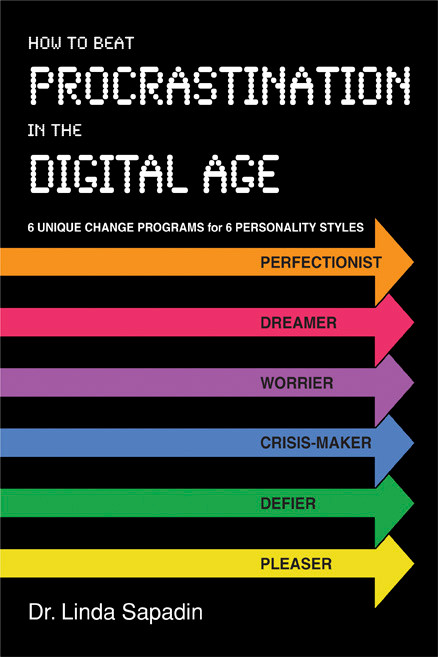Help for procrastinators
Don’t put off reading Dr. Linda Sapadin’s new self-help book
Procrastination, to those who aren’t personally afflicted, may seem like an odd mental malady. Why wouldn’t everyone just do now what he or she knows must get done? Why hesitate? Why put off the inevitable? Why not just hunker down, make time and do what you know you have to do right away?
Even procrastinators don’t know the answers to these questions. But Linda Sapadin, who has a doctorate in psychology and specializes in treating patients who are habitual procrastinators, does. Sapadin, a regular columnist for the Nassau Herald, knows there isn’t only one type of procrastinator, so there isn’t only one treatment to help change a patient’s behavior.
Reading her latest book, “Beat Procrastination In the Digital Age,” feels like a genial one-on-one session with an understanding professional who’s trained to help the reader diagnose what kind of procrastinator he or she is and what plan for change will work best. Not stuffy or cluttered with opaque psycho-jargon, Sapadin’s book is practical, insightful and — if you’re a chronic procrastinator or close to someone who is — extremely useful.
There are quizzes the reader takes to determine what kind of procrastinator he or she is: the Perfectionist, the Dreamer, the Worrier, the Crisis-Maker, the Defier or the Pleaser. Most readers will find they have traits shared by several of the personality types.
From the guided self-diagnosis flows the most appropriate —and likely most effective — course of treatment, or ways in which you can change your behavior to procrastinate less and be happier.
The author said that one reader had this reaction: “[It’s a] well-written book. Lots of insight. Helpful tips for becoming more productive. Loved the Self-Assessment Quiz. Learned that my Crisis-Maker style worked well in college, when I could easily pull an all-nighter with no repercussions. Today, 20 years later, it’s a different story. Not only is the last-minute crunch hard on me, but it’s annoying to my colleagues and my wife. I learned I don’t need to wait till I’m under the gun before I get going.”
Sapadin uses simple, short, self-administered diagnostic “tests,” guided imagery, to-do exercises and enabling skills to help readers effectively reclaim the power over their own actions that they have somehow lost.
The book is about changing harmful behavior, so readers can get right to the problem, identify what they’re doing (and not doing), and learn what bad habits they need to break and what actions they can take right away to reduce the problem. There is barely a hint of theory, and no attempt to discover deep-seated childhood causes of current behavior. “Beat Procrastination” isn’t a textbook, nor does it read like one.
If you’re having trouble at home, in class or at work with habitually putting things off that you really ought to — or just really want to — get done, “Beat Procrastination In the Digital Age” can help you get out of your frustrating trap of inaction. If you’re OK but know someone who chronically procrastinates, it’s not too late to give them a useful New Year’s gift.
You can buy a soft-cover version ($14.95 plus shipping and handling) or a digital copy ($12.95) at SixStylesofProcrastination.com, Amazon.com or BarnesandNoble.com. Type in “Sapadin” and review all of her books.






